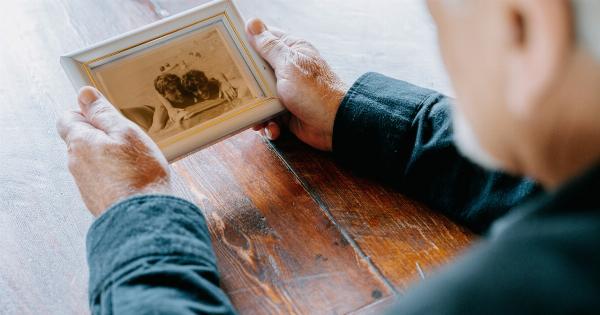Losing a spouse is undoubtedly one of the most painful experiences anyone can go through. The first seven days following the death of a loved one are often filled with a whirlwind of emotions, confusion, and a sense of overwhelming grief.
In this article, we will explore what widows and widowers might experience during these initial days of mourning, offering insights and suggestions on coping with the loss.
Shock and Disbelief
The first day after the loss of a spouse is often marked by shock and disbelief. It may feel surreal, as if a horrible nightmare that cannot possibly be real. This initial stage is crucial for the individual to process the reality of their loss slowly.
Friends and family members should be present, offering both emotional support and practical assistance.
Sorrow and Grief
As reality sets in, the newly widowed may find themselves overwhelmed by deep sorrow and grief. It is entirely natural to mourn the loss of a life partner and to miss their presence immensely.
Often, this stage is characterized by strong emotions and uncontrollable crying. It is vital for friends and family members to provide a space for the grieving person to express their emotions openly.
Practical Considerations
Amongst the emotional turmoil, the first seven days also require attention to practical matters. Funeral arrangements, contacting the necessary authorities, and notifying friends and family about the loss all need to be addressed.
It can be helpful for a close friend or family member to assist the grieving individual in handling these practical considerations during this overwhelming period.
Support System
During this time, it is crucial for the widowed person to reach out for support. Friends and family play an essential role in helping the grieving individual navigate through their loss.
Joining support groups for individuals who have experienced the loss of a spouse can provide a safe space for both sharing and listening. Such groups can offer practical advice, emotional comfort, and the opportunity to connect with people who truly understand the unique experience of losing a partner.
Self-Care and Healing
While grieving, it is easy to neglect one’s own well-being. However, self-care is incredibly important during this time of profound loss.
Engaging in activities that bring comfort and solace, such as taking gentle walks, practicing mindfulness, or engaging in hobbies, can help ease the burden of grief. Nourishing the body with healthy food and ensuring sufficient rest is also essential to provide the strength needed during this challenging period.
Memorializing the Deceased
Honoring the memories of the departed loved one can be a source of comfort for many widows and widowers. Creating a tribute, such as a photo album or a scrapbook, can help keep their presence alive in the hearts and minds of those left behind.
Holding a memorial service, inviting friends and family to share stories and memories, can create a space for healing and closure.
Financial Considerations
Financial management is an aspect that should not be overlooked following the loss of a spouse.
Contacting a financial advisor or an attorney experienced in such matters can help the widowed individual navigate through the necessary paperwork, insurance claims, and other financial obligations. Proactively seeking expert advice can alleviate some of the stress associated with financial matters during this difficult time.
Embracing Support from Others
Friends, family, and the wider community will often rally around the newly widowed individual to offer condolences and help in any way possible. Receiving support from others is essential, so it is important to welcome the assistance offered.
This could include help with day-to-day tasks, emotional support, or simply having a caring friend available for conversation. Accepting help not only lightens the load but also provides a reminder that one does not need to face this overwhelming time alone.
Seeking Professional Help
In some cases, the grief and emotional distress experienced after losing a spouse can become overwhelming, lasting longer than what is considered a “normal” mourning period.
If feelings of intense sadness, despair, or hopelessness persist, it may be beneficial to seek professional help. Grief counselors, therapists, or psychologists can support individuals as they navigate their way through the complex emotions and challenges associated with grief.
Embracing the Healing Process
Ultimately, the first seven days after losing a spouse are just the beginning of a long and challenging healing process. It is important to remember that grief does not follow a linear path and everyone’s journey is unique.
Give yourself permission to grieve, take the time you need, and be patient with yourself along the way. Healing takes time, and it is a personal journey that cannot be rushed or forced. Be kind to yourself and have faith that brighter days will come.
In Conclusion
The first seven days as a widowed individual are undoubtedly difficult and filled with immense emotions. It is essential to surround oneself with a strong support system, seek professional help when needed, and practice self-care.
By taking each day as it comes, embracing the healing process, and allowing emotions to unfold naturally, widows and widowers can gradually rebuild their lives and find moments of peace and happiness amid the pain.






























